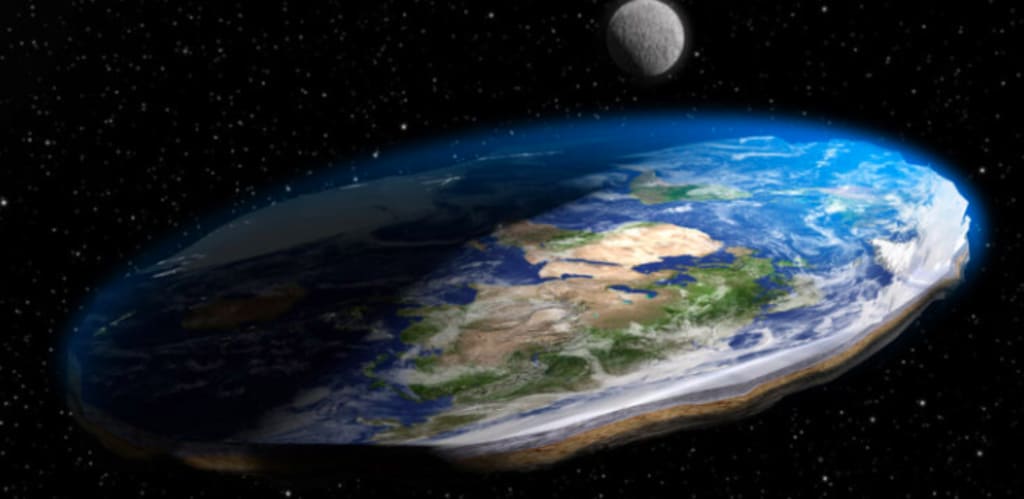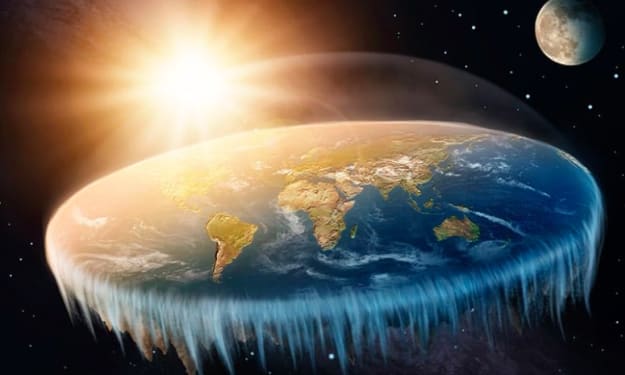
CNN, for instance, covers a flat earth conference, noting that much like other speakers at the event, this individual became convinced of a flat Earth once he realized he couldn't substantiate the Earth's roundness. Let's set aside the technical point that empirical facts can't be strictly proven; we can only establish mathematical identities. So, with more precision, we should discuss the search for evidence that contradicts the flat Earth hypothesis. Abundant evidence exists, ranging from historical records of shifting stellar constellations during travel, altering shadow lengths, Newton's 1/R^2 force law applicable to spheres, not disks, and considerations like Einstein's gravitational redshift and Mercury's perihelion precession. The challenge for flat earthers is their limited ability to make these observations themselves. Hence, if one adopts the notion that only personally gathered evidence is valid, refuting a flat Earth becomes elusive, constraining flat earthers from accepting established scientific facts. Naturally, to sustain their convictions, they might deliberately avoid observations that challenge their stance. In reality, there are accessible ways to confirm Earth's roundness without significant technical complexity, such as using a telescope to understand Jupiter's moon motions.
But what's the flaw in the flat earther's perspective? Isn't their call for evidence precisely what rational thinkers should do? While evidence remains crucial for scientific advancement, the philosophical stance of flat earthers, where they reject specific forms of evidence, is inconsistent and fundamentally flawed. The fundamental point is that all evidence we possess derives from our senses, with the exception, as Descartes noted, of evidence regarding our capacity to think, which isn't pertinent here. What matters is that the separation flat earthers strive to make between diverse types of evidence is nonexistent. All evidence, including hearing about another's experiment or reading a paper detailing an argument, constitutes our own sensory input. However, a real distinction lies in the effort required to decipher certain sensory inputs; some are straightforward, while others demand more interpretation. Flat earthers encounter problems because they resist deciphering intricate sensory input. Optical illusions serve as a fitting example, as our brains sometimes misinterpret visual data, as seen in the classic illusion where square A seems darker than square B, despite them being equal. Accurate interpretation mandates incorporating additional information, like our awareness of optical illusions. Similarly, flat earthers err by neglecting to decode evidence, dismissing significant evidence their senses provide. This pertains to understanding societal and scientific dynamics. Regardless of our role as scientists or not, we all rely on this evidence to navigate life, and it's likely that flat earthers are no exception.Let's consider the scenario of purchasing canned soup from a supermarket. Do you possess evidence that the contents are safe to eat? Likely not. The can is sealed, and you probably lack information about its production. Despite this, you don't hesitate to eat it. Does this seem irrational? No, because you do indeed have evidence that canned soup is edible. Your trust is based on understanding your country's legal system, food regulations, and the consequences that would ensue if the product were harmful. This trust is a logical inference from evidence you've gathered firsthand, primarily through your senses. Now, let's relate this to flat earthers. Most of us lack physics degrees and may not have deeply contemplated the Earth's roundness since learning about it in school. Your confidence in this fact stems from its plausibility, widespread teaching, and your government's emphasis on accurate education. Thus, you have substantial grounds to believe the knowledge you've acquired is supported by solid scientific evidence. This isn't appealing to authority; you've collected evidence about societal and scientific norms. Consider the tangible proof of scientific success—airplanes, laptops, eyeglasses—all evidence that science functions and the system operates effectively.
Hence, if you're unable to recall specific experiments disproving a flat Earth or instantly counter flat earther arguments, there's no shame in rejecting their claims. Your rejection rests on evidence of science's reliability. The issue lies in flat earthers' assertion that they're engaging in a scientific discourse. However, the debate about Earth's shape was resolved long ago; their argument pertains to whether you should trust evidence collected by others. This trust is pivotal for societal and scientific advancement. Otherwise, each individual would need to begin anew with birth. Although flat earthers might eventually grasp Earth's roundness, it could take centuries to reinvent modern science. Hence, scientists should address flat earthers' philosophical predicament earnestly. It's a concern that any scientifically progressed society must confront. Redoing all past scientific experiments individually isn't feasible. Consequently, it's increasingly crucial for scientists to furnish evidence of how science functions, enabling those who can't engage with the research itself to rely on evidence that the system accurately describes nature. In my view, flat earthers serve as a cautionary signal for scientists. As scientific concepts become more intricate for non-experts to grasp, the onus is on us to meticulously elucidate our argumentative methods. Thank you for your attention, and until next week.





Comments
There are no comments for this story
Be the first to respond and start the conversation.